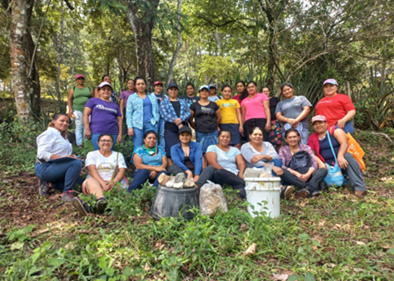
In Morazán Norte, the projects were focused on the production of vegetables and basic grains in an agroecological way, but most of the participants were men. Women were incorporated in some commercial and gender training activities, but not in agricultural activities. Gender prejudice and male concentration in land ownership had a lot to do with this, in addition to the fact that the technical team had not addressed this problem adequately.
The solution was to implement farmer field schools exclusively for women, promoting their empowerment in agroecological techniques and guaranteeing active and equitable participation in community agricultural processes.
We are backed by more than 30 years of work in our communities in the department of Morazán, promoting the human capacities of women and men in sectors such as agriculture, entrepreneurship, the defence of human rights, soil conservation works, among others.